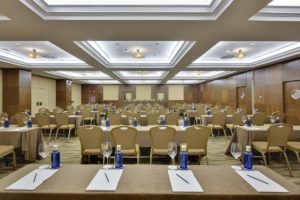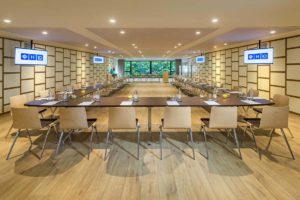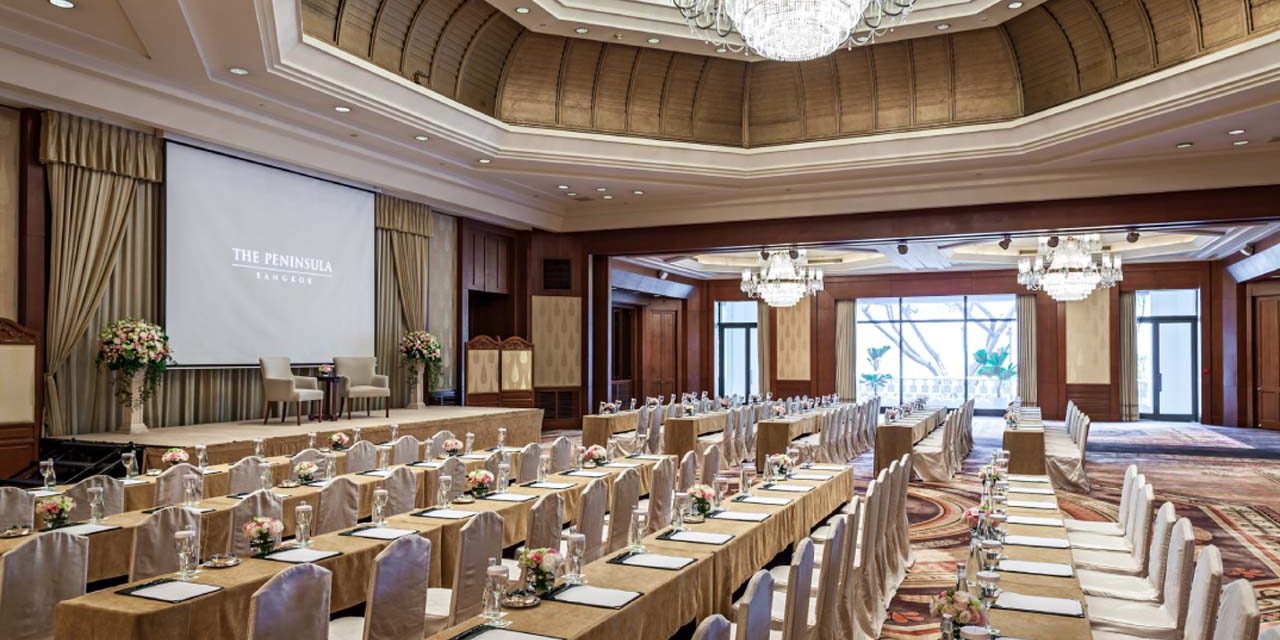Summary:
Seminars are among the most common events that meeting and event planners organize — and success depends on strong structure, clear objectives, and attention to detail. Whether hosting a half-day seminar or a full-day meeting, use this guide as a practical checklist to streamline your planning process.
In Brief
-
Seminars remain one of the most frequent and effective formats for professional development and training.
-
A structured planning checklist ensures that event objectives, logistics, and attendee experiences align seamlessly.
-
These steps apply to any size seminar — and can easily scale to multi-day meetings and conferences.
1. Define the Purpose and Objectives

Courtesy image
Before selecting a venue or sending invitations, clarify the fundamental purpose of the seminar. Ask:
-
Who is the target audience?
-
What topic or theme will be covered?
-
Why will participants attend — education, networking, or certification?
-
Where should the seminar take place for optimal convenience and impact?
-
What outcomes or learning objectives should attendees achieve?
A clear purpose drives every subsequent planning decision — from speaker selection to budget and venue choice.
2. Use Industry Standards for Event Specifications
Professional planners rely on established frameworks to manage event details efficiently. The Events Industry Council’s APEX (Accepted Practices Exchange) Event Specifications Guide offers a strong foundation for tracking requirements, such as:
-
Event profile (dates, times, contacts)
-
Organizer and supplier details
-
Attendee demographics
-
Meeting space and setup requirements
-
Food and beverage needs
-
Audio/visual and technology setup
Using a standardized template helps avoid oversights and ensures consistent communication among all stakeholders.
3. Develop an Event Profile
With objectives defined, create an event profile that captures the essential details and logistical needs. Work closely with the host organization to determine the most appropriate type of venue. Common seminar options include:
-
Hotel meeting rooms
-
Dedicated conference centers
-
Private dining or restaurant spaces
-
University or business facilities
-
Museums, galleries r unique venues
Choose a location that reflects the seminar’s purpose, audience expectations, and accessibility.
4. Define Requirements and Request Venue Proposals
Before sending a request for proposal (RFP), identify the seminar’s needs in detail. This step ensures venues can provide accurate estimates and suitable space.

Courtesy image
Prepare details, such as:
-
Preferred dates and timing (include setup and teardown)
-
Anticipated number of attendees
-
Room setup (classroom, U-shape, theater, etc.)
-
Food and beverage requirements
-
A/V needs (screens, microphones, projectors)
Tip: Hire an on-site A/V technician dedicated to your seminar. It’s one of the best ways to prevent last-minute issues.
5. Collaborate on the Agenda
The seminar agenda often evolves from the first concept to the final program. Maintain flexibility and coordinate regularly with the host organization.
Ensure that session timing, breaks, and presentations flow logically — and confirm all updates with the venue so setup and catering align accordingly.
6. Finalize Contracts and Banquet Event Orders (BEOs)
Once attendance and logistics are confirmed, finalize the venue contract and BEO.
Most agreements allow flexibility to adjust food and beverage counts up to a set deadline. Review cancellation clauses and reduction policies carefully — and always estimate attendance conservatively to control costs.
7. Prepare Event Materials and Communications
Event collateral sets the tone for the attendee experience. Depending on scope, planners may oversee:
-
Invitations and registration materials
-
Agendas and printed programs
-
Name badges and signage
-
Presentation templates or digital assets
-
Speaker gifts or attendee giveaways
Ensure all materials reflect consistent branding and professional quality.
8. Confirm Details Before the Event
In the final week, conduct a comprehensive pre-event review with the host and venue. Confirm:
-
Final attendee numbers
-
A/V setup and testing schedule
-
Speaker arrival and rehearsal times
-
Event staffing and host responsibilities
-
Shipping and placement of materials and signage
Triple-check every detail — especially presentation files, which often change right before the event.
9. Setup and On-Site Readiness
Plan to arrive early — ideally two hours before the event begins — to oversee setup and test all systems. For morning events, request access the evening before for partial setup (avoiding the stress of early-day logistics). Ensure the following are ready:
-
Registration table and signage
-
Seating layout and place cards (if applicable)
-
Audio/visual systems and lighting
-
Handouts, displays, and giveaways
Tip: Never leave valuables or equipment unattended overnight in public spaces.
10. Execute and Evaluate the Event
Execution is where all planning pays off. Expect a few variables — early arrivals, late attendees, and occasional technical hiccups are normal. Stay calm, communicate clearly with the venue and host and focus on the attendee experience. Afterward, gather feedback from both participants and the event host to evaluate success and identify areas for improvement.
Final Thoughts
A well-organized seminar creates meaningful learning, networking, and brand engagement opportunities.
By following this checklist — from purpose to post-event evaluation — meeting and event planners can deliver professional, memorable experiences that meet both client goals and attendee expectations.
Learn more tips for meeting and event professionals.
Updated. Initially published August 15, 2010.




